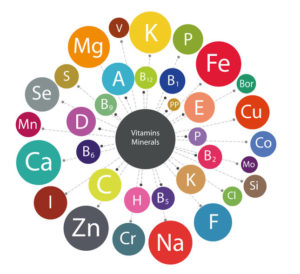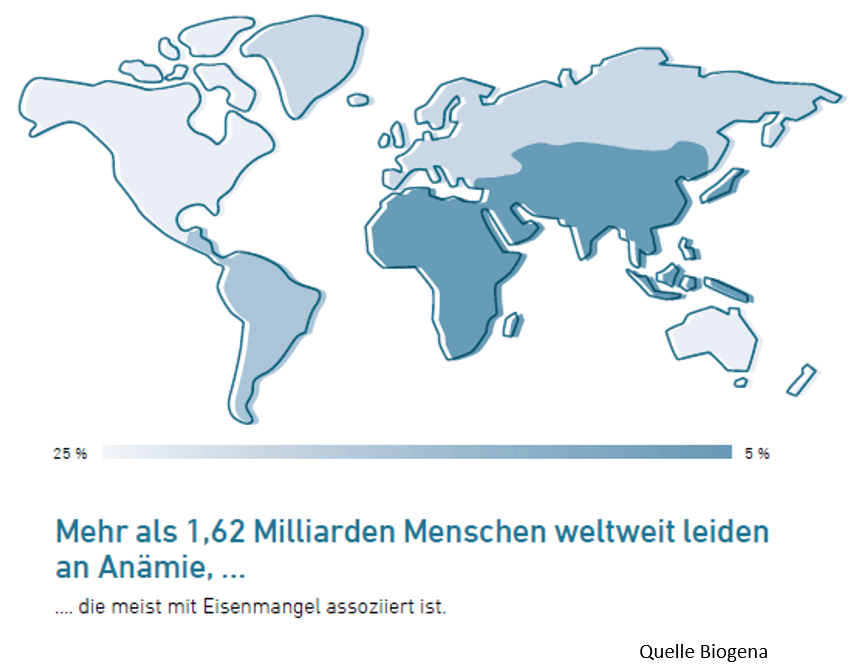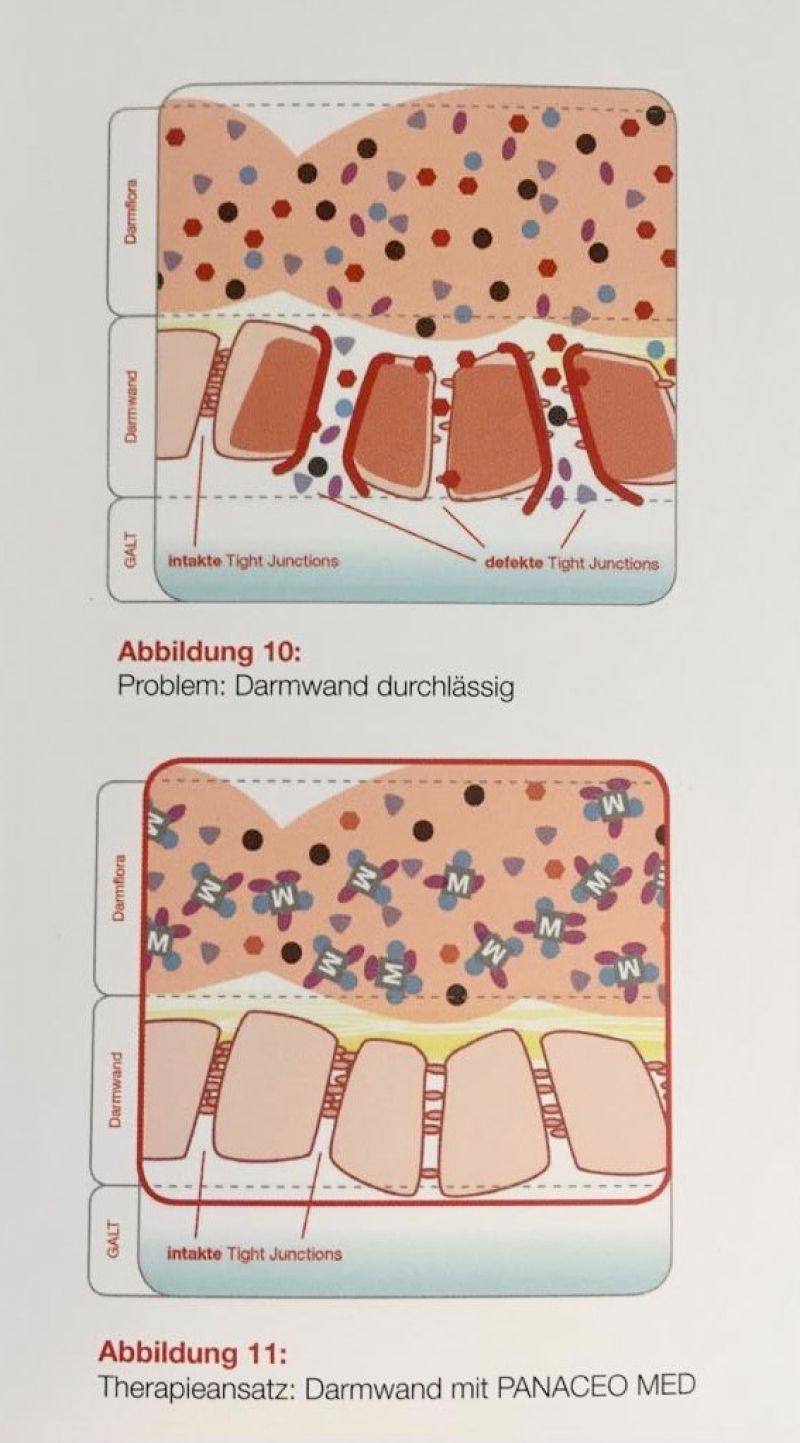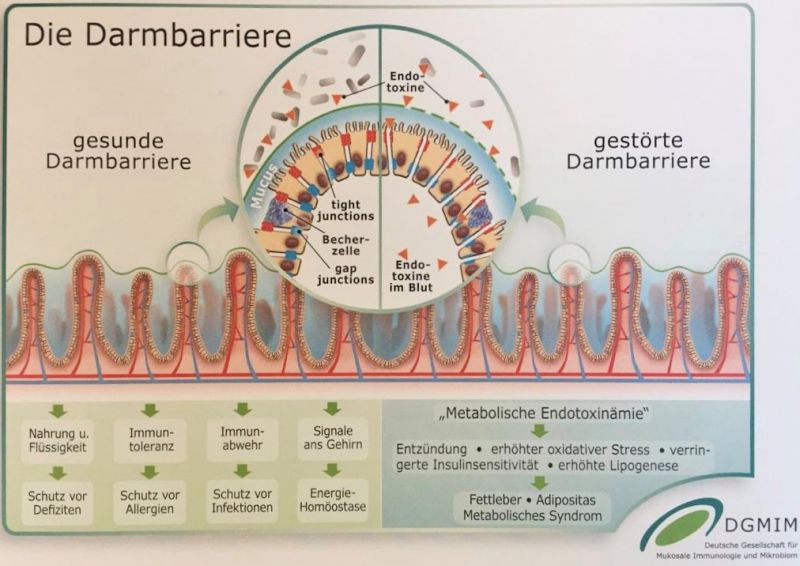The healthy gut - Part 3
"Why should I take a mineral supplement? I eat a whole food diet!" We often hear this statement in our practice.

There are two reasons for substituting trace elements:
- Firstly, due to intensive agriculture, our food today contains only a fraction of the vitamins and trace elements that it had as ingredients a few decades ago.
- Secondly, the modern lifestyle with significantly more stress leads to a higher consumption of vital trace elements.
Analyses of these vital substances from whole blood, which we offer to all patients in our practice, often reveal serious deficiencies. The experience of our patients with the substitution of trace elements shows: vital energy, digestive power and immunity improve rapidly with this therapy. .
What are trace elements?
They are mineral substances that are necessary in small quantities as catalysts of metabolic processes and as building blocks of tissues. They include potassium, magnesium, calcium, copper, zinc, selenium, iron and manganese. Here are a few examples: Magnesium is necessary for all processes of energy production in the body and for muscle contraction and relaxation. We need calcium as a structural element of the bones. Iron is essential for the transport of vital oxygen in the body.
Deficiency of trace elements
If one or more minerals are not available in sufficient quantities, this leads to functional disorders in the body. The best known are muscle cramps due to magnesium deficiency or fatigue due to iron deficiency. .  These deficiencies are not uncommon. They affect a large part of the world's population and are just as common here as in economically weaker regions of the world.
These deficiencies are not uncommon. They affect a large part of the world's population and are just as common here as in economically weaker regions of the world.
Trace elements and the intestine
The intestine needs sufficient mineral vital substances to function normally. A lack of sodium, potassium and magnesium, for example, means that the digestive juices cannot be formed properly and the transport of the digestive pulp and also the excretions do not function properly. If the food is not transported properly, fermentation and putrefaction processes occur in the intestines, i.e. the formation of Ama - toxic waste products. This results in damage to the intestinal walls and leads to even less of the vital substances being able to enter the body through the intestinal walls. This condition is called "leaky gut" in modern medicine. If the intestine is altered in this way, the supply of vital substances is further impaired. This is the starting point of many chronic diseases. Subjectively, this condition is almost always associated with discomfort in the stomach and chronic fatigue.
Healing the gut with minerals
Ayurveda recognised the importance of minerals and trace elements for a healthy gut thousands of years ago. One of the classic raw materials for a healthy intestine is a tar-like substance called shilajit. This "stone tar" is found in the mountainous regions of the Himalayas and is an essential ingredient in frequently used Ayurvedic preparations. The main effect of these preparations is an anti-inflammatory and mucosa-healing effect in the intestines. Shilajit is bound to herbal active ingredients in many processing steps so that it can unfold its effect. These agents include the preparations MA631, MA347 and MA600. Depending on the medicinal plants with which shilajit is processed, different directions of action are produced. MA631 improves the digestive power Agni and has an anti-inflammatory effect on all mucous membranes of the gastrointestinal tract. MA347 targets not only the intestines but also the abdominal organs, where it has a purifying, cleansing and anti-inflammatory effect. MA600 contains mineral-rich stone tar as well as Ayurvedically prepared iron. As a result, it not only has a healing effect on the mucous membranes of the gastrointestinal tract, but also supplies the body with easily absorbed iron. Unlike conventional iron remedies, it has no side effects such as constipation and abdominal pain.
Mineral remedies from modern medicine
Alkaline powder
Many people suffer from hyperacidity of the body. In the gastrointestinal tract, this often manifests itself as gastritis (stomach inflammation), reflux (heartburn) or irritable bowel syndrome. The main ingredient of alkaline powder is sodium bicarbonate, a substance that "buffers" the excess acid. Other useful ingredients of a good alkaline powder are potassium and magnesium citrate.
Zeolith
Zeolite is a collective term for minerals of the "silicates and germanates". These substances have the property of absorbing toxic substances in the gastrointestinal tract like a sponge. This is very helpful in situations where chronic inflammation or exposure to heavy metals lead to intestinal dysfunction. Modern studies show that the use of zeolite can eliminate inflammatory bowel diseases and secondary symptoms of heavy metal stress.
Magnesium
This trace element is responsible for the proper tone of the muscles of the intestine . Especially in people with a Vata constitution, a lack of magnesium leads to cramps in the intestines. Regular substitution of magnesium helps to ensure daily defecation. Magnesium preparations such as Glauber's salt or Epsom salt are also suitable for cleansing cures.
Selenium
The intestine is the centre of the immune system. Selenium is the most important trace element for a normally functioning immune system. .
Zinc
This vital substance is essential for the normal function of all mucous membranes and the skin. A zinc deficiency is causally involved in chronic inflammations of the intestinal mucous membranes and in many skin diseases. The Ayurvedic multi-mineral preparation MA1665 offers a particularly gentle form of supportive zinc supply.
Vital substance analysis
Whether or which minerals you are lacking can best be determined with a vital substance analysis from whole blood. This analysis shows how the body's cells are supplied with trace elements. Conventional blood tests "only" show whether certain minerals are present in the serum (blood fluid). However, this does not express a possible lack of trace elements in the cells. In our practice, we offer such a whole blood analysis of vital substances with every blood test.

Summary
From the point of view of both Maharishi AyurVeda and modern medicine, mineral trace elements are essential for a healthy gut. Traditional Ayurvedic preparations have the effect that minerals are bound to plant substances and can thus be absorbed without irritating the intestine. To be continued (probiotics, external applications and cleansing therapies)




We look forward to your feedback!